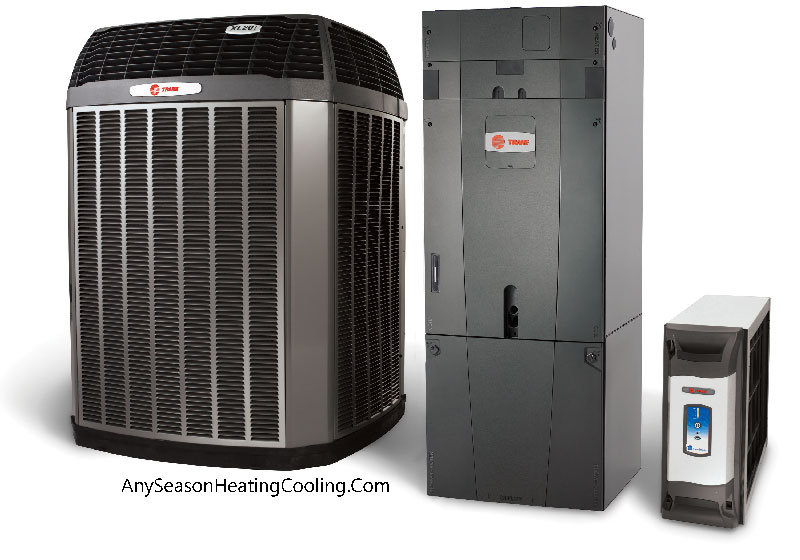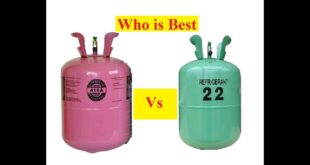The HVAC industry is a vast and complex one, with a wide range of companies and services offered. In this article, we will take a look at the industry as a whole, from its history and current state to its future outlook. We will also discuss some of the key trends that are shaping the industry, and provide some tips for businesses that are looking to enter or expand in the HVAC market.

The History of the HVAC Industry
The HVAC industry can trace its roots back to the early days of the Industrial Revolution when the need for heating and cooling systems became increasingly apparent. The first modern HVAC systems were developed in the late 19th century, and the industry has been growing ever since.
Today, the HVAC industry is a multi-billion dollar industry, with companies of all sizes operating in every corner of the globe. The industry is constantly evolving, with new technologies and innovations being developed all the time.
The Current State of the HVAC Industry
The HVAC industry is currently in a state of flux. The COVID-19 pandemic has had a significant impact on the industry, as many businesses have been forced to reduce or eliminate their HVAC services. In addition, the industry is facing increasing competition from new technologies, such as renewable energy sources.
Despite these challenges, the HVAC industry remains a vital part of the global economy. The demand for HVAC services is expected to continue to grow in the years to come, as the global population continues to grow and the climate changes.
The Future of the HVAC Industry
The future of the HVAC industry is uncertain. The industry is facing a number of challenges, including the COVID-19 pandemic, increasing competition, and the need to adapt to changing climate conditions. However, the industry is also poised for growth, as the demand for HVAC services is expected to continue to grow in the years to come.
In order to succeed in the future, HVAC businesses will need to be innovative and adaptable. They will need to be able to offer a wide range of services, including both traditional and new technologies. They will also need to be able to adapt to changing climate conditions and the increasing demand for energy efficiency.
Key Trends in the HVAC Industry
There are a number of key trends that are shaping the HVAC industry. These trends include:
- The rise of renewable energy sources: Renewable energy sources, such as solar and wind power, are becoming increasingly affordable and efficient. This is leading to a decline in the demand for fossil fuels, which are used to generate electricity for HVAC systems.
- The need for energy efficiency: The demand for energy efficiency is growing, as businesses and homeowners looking to reduce their energy bills. This is leading to an increase in the demand for energy-efficient HVAC systems.
- The growth of smart home technology: Smart home technology is becoming increasingly popular, as homeowners look to automate their homes. This is leading to an increase in the demand for HVAC systems that can be controlled remotely.
Tips for Businesses Entering or Expanding in the HVAC Market
If you are a business that is looking to enter or expand in the HVAC market, there are a few tips that you should keep in mind:
- Do your research: The HVAC industry is a complex one, with a wide range of companies and services offered. It is important to do your research and understand the market before you enter.
- Offer a wide range of services: The HVAC industry is a service-oriented industry. In order to be successful, you will need to offer a wide range of HVAC services, including both traditional and new technologies.
- Be innovative and adaptable: The HVAC industry is constantly evolving. In order to be successful, you will need to be innovative and adaptable. You will need to be able to offer new technologies and adapt to changing climate conditions.
- Partner with other businesses: The HVAC industry is a complex one, and it is often necessary to partner with other businesses in order to be successful. For example, you may need to partner with a company that specializes in renewable energy sources or smart home technology.
What is the HVAC industry?
The HVAC industry is responsible for the heating, ventilation, and air conditioning of buildings. It is a multi-billion dollar industry that employs millions of people around the world. The industry is divided into two main sectors: commercial and residential.
The commercial sector is responsible for the HVAC systems in office buildings, hospitals, schools, and other large buildings. The residential sector is responsible for the HVAC systems in homes and apartments.
Types of HVAC Systems
There are two main types of HVAC systems: central and ductless. Central systems are the most common type of system. They have a central furnace or air conditioner that distributes hot or cold air throughout the building through a network of ducts. Ductless systems do not have ducts. They have a small unit that is installed in each room or zone.
Technologies Used in HVAC
There are a number of technologies that are used in HVAC systems. Some of the most common technologies include:
- Air conditioners: Air conditioners use refrigerant to cool the air.
- Furnaces: Furnaces use gas or electricity to heat the air.
- Heat pumps: Heat pumps can both heat and cool the air.
- Water heaters: Water heaters use gas or electricity to heat water.
- Solar panels: Solar panels can be used to generate electricity to power HVAC systems.
Trends Shaping the HVAC Industry
There are a number of trends that are shaping the HVAC industry. Some of the most important trends include:
- The rise of energy efficiency: Energy efficiency is becoming increasingly important as the cost of energy rises. HVAC systems are becoming more efficient, which is helping to reduce the cost of energy bills.
- The growth of the green industry: The green industry is growing rapidly, and HVAC systems are playing a role in this growth. Green HVAC systems are designed to be more environmentally friendly, and they are becoming more popular as people become more aware of the importance of sustainability.
- The use of technology: Technology is playing an increasingly important role in the HVAC industry. New technologies are being developed all the time, and these technologies are helping to improve the efficiency and performance of HVAC systems.
Tips for Choosing the Right HVAC System
There are a number of factors to consider when choosing the right HVAC system for your needs. Some of the most important factors include:
- The size of your home or office: The size of your home or office will determine the size of the HVAC system that you need.
- The climate you live in: The climate you live in will determine the type of HVAC system that you need.
- Your budget: The cost of HVAC systems can vary widely. It is important to find a system that fits your budget.
- Your needs: Consider your needs when choosing an HVAC system. Do you need a system that can cool and heat your home or office? Do you need a system that is energy efficient? Do you need a system that is quiet?
Conclusion
The HVAC industry is a vital part of our lives. It keeps us comfortable in our homes and businesses, and it helps us to stay healthy. The industry is constantly evolving, with new technologies and innovations being developed all the time. By understanding the different types of HVAC systems, the technologies that are being used, and the trends that are shaping the industry, you can choose the right HVAC system for your needs.
 E340 USA – Economy – HVAC – Energy – Health – Education
E340 USA – Economy – HVAC – Energy – Health – Education


One comment
Pingback: Montana HVAC Services - How to Save Money on HVAC Services